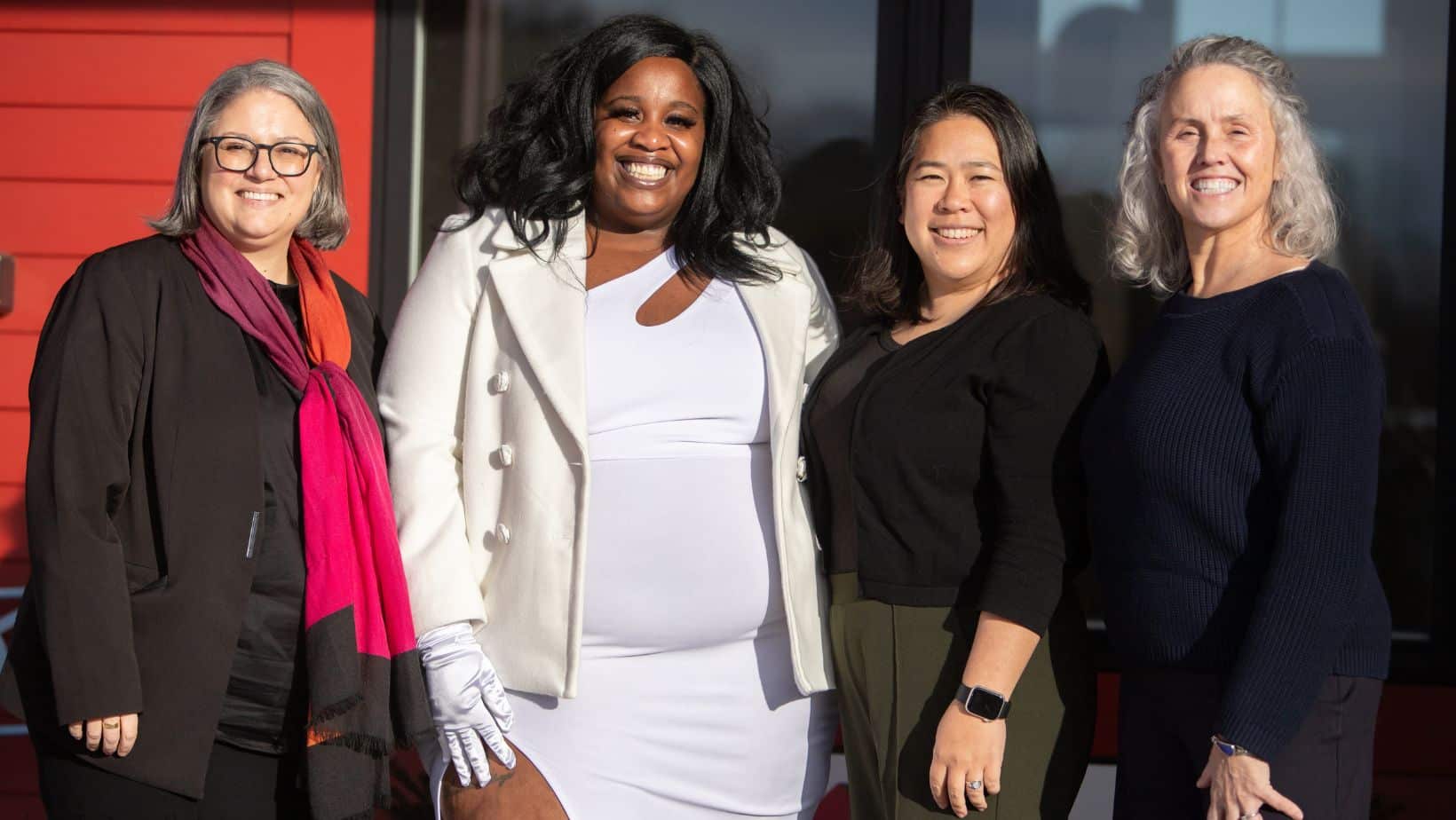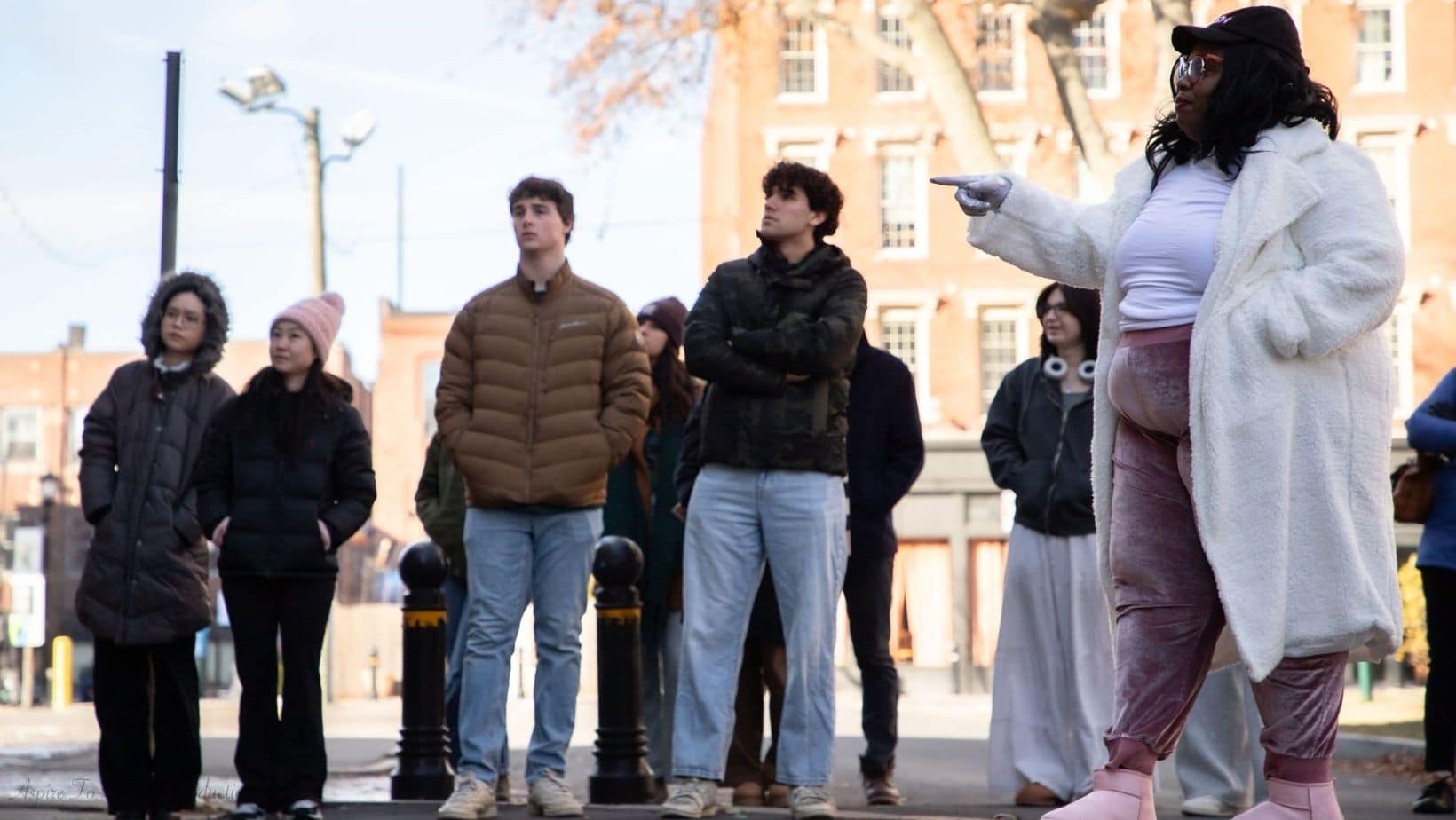Tiffany Allecia’s work is driven by a simple but powerful belief: economic justice is the foundation of systemic change.
A lifelong Springfield MA resident, she envisions her city as a place where everyone has clear pathways to success, not just those who are already positioned to succeed.
For her, economic development and creative community-building are inseparable; the creative economy is not just about art; it’s about ownership, sustainability, and equitable access to opportunity.
Her work sits at the intersection of policy, entrepreneurship, and the creative economy.
“The reason I do what I do is because we have not yet achieved true liberty and equity,” she says. “We have to mitigate what I call the gaps; education, economic, environmental, housing, food insecurity, and health inequality, so that no one is left simply surviving.”
If you have seen Tiffany in action, you will know that this is not all talk. She lives her message. Her packed calendar of events which sees her meeting with policymakers, grassroots activists, and business people at all levels is a testament to that.
Beyond meetings, Tiffany is involved in many initiatives to help Western Massachusetts as a region become a better place for its residents and destination for its visitors.
She’s a member of Governor Maura Healy’s Cultural Economy Advisory Council, Executive Director of Springfield Creative City Collective, the founder of Black and Brown Wall Street, and a key organizer of the Western Massachussets Economic Ecosystem Summits.
“If we do this right, the next generation won’t have to start from scratch,” Tiffany says. “We need structures that ensure Black and Brown entrepreneurs don’t just get in the door, but that they can own the building.”
A vision rooted in equity and economic power
Tiffany’s work is not about getting handouts for Black and Brown people. it’s about systemic change.
Through Black and Brown Wall Street, she has created platforms where minority-owned businesses can get a platform beyond pop-up markets and get assistance moving into long-term economic empowerment.
The Springfield Creative City Collective, under her leadership, has become a hub for artists and entrepreneurs looking to turn creative energy into sustainable careers.
“Springfield’s creative economy has been undervalued for too long,” Tiffany notes. “People see it as ‘just the arts,’ but this is about ownership, investment, and keeping wealth in our communities.”
Her advocacy has been recognized widely, including being named to BusinessWest’s 40 Under 40 Class of 2023 list, honoring her innovative contributions to economic development in the region. She has also been a sought-after speaker on topics ranging from pay equity in the arts to inclusive economic policy.
On the issue of pay equity, she recently posted on LinkedIn about how her salary as the Executive Director of the Springfield Creative City Collective makes it hard for her to feed her family and she has had to move back in with her mother.
“I live paycheck to paycheck on a ‘65,000’ a year stipend before taxes with no benefits, and I consistently use personal funds to mitigate community efforts and attend these type of events,” she wrote, echoing the current reality of many nonprofit leaders, business people, and other professionals in Western Massachusetts and beyond.

Left to Right Mayor of Northampton Gina-Louise Sciarra, SCCC Founder Tiffany Allecia, South Hadley Town Administrator Lisa Wong and Mayor of Easthampton Nicole LaChapelle at a Western MA Economic Ecosystem Summit Dec 2024
From frontline activism to economic leadership
Before stepping into boardrooms, Tiffany was on the front lines—literally. She spent years as a direct-action activist, even sleeping outside the Springfield Police Department in protest after The United States Department of Justice Civil Rights Division (DOJ) and The United States Attorney’s Office for the District of Massachusetts (USAO) released a damming report on their methods of operation at the time.
“When I transitioned from activism to economic development, it wasn’t a departure, it was a continuation,” she explains. “I realized that real change happens when people have the power to build wealth and ownership, not just demand justice.”
That shift from protest to policy allowed her to bridge the gap between grassroots movements and institutional change and to understand the forces that move the needle.
“I realized early on that protests are necessary, but if you’re not at the table where budgets and policies are decided, then you’re just hoping that those in power will do the right thing. And hope is not a strategy.”
The deeper challenges of economic development in Springfield
Springfield, like many cities across the country, faces systemic barriers that limit economic mobility, particularly for Black and Brown communities.
Tiffany is vocal about the segregation that still exists in the city and how that impacts business growth, education, and generational wealth-building.
“We’re still dealing with the legacy of redlining,” she explains. “Neighborhoods that were historically excluded from homeownership opportunities now struggle with underfunded schools and fewer economic investments. That’s not just history, that’s today’s reality.”
She also points to the immense burden on Springfield’s public school system, which serves a large population of students facing economic hardships. “If we’re talking about building an economic future, we have to talk about education,” she says. “How are we preparing young people for entrepreneurship, for financial independence? Right now, too many of them are navigating a system that wasn’t designed with them in mind.”
Springfield’s per-student spending is among the highest in the state, yet the challenges many students face outside the classroom- poverty, housing instability, and systemic inequities- mean that money alone isn’t enough.
“You can invest in schools, but if kids are hungry, if they’re dealing with trauma, if their families are struggling to make ends meet, education can only do so much,” Tiffany says.
“We need a holistic approach that addresses economic and social conditions alongside educational investment.”
Another major issue she highlights is the lack of pathways from school to sustainable careers in Springfield.
“A lot of talent leaves the city because they don’t see opportunities to thrive here,” she notes. “We need to make Springfield a place where young professionals, especially creatives and entrepreneurs, can see a future.”

Tiffany Allecia leads students from Amherst College on a tour of Downtown Springfield, January 2024
The challenges of building a resilient economy in Western MA
Tiffany’s work comes at a time when Western Massachusetts faces significant economic hurdles, including;
- Persistent wealth gaps that disproportionately impact minority-owned businesses.
- A lack of access to capital for startups and small businesses outside traditional funding networks.
- A fragmented creative economy where artists and entrepreneurs struggle to find sustained support.
- Declining industrial jobs that leave a void in employment opportunities for many residents.
“We cannot rely on outdated economic models,” Tiffany says. “If we want Springfield to thrive, we have to recognize that the future is in a dynamic, diverse, and inclusive economy that values creative industries as much as traditional ones.”
Turning summits into actionable strategies
The Western MA Economic Ecosystem Summits, which Tiffany has co-organized alongside Hope Ross Gibaldi, formerly of Valley Venture Mentors, are unique in that they bring together stakeholders from all four counties of Western Massachusetts. These summits gather business leaders, policymakers, and grassroots organizers to collaborate on economic solutions that span the entire region.
These gatherings are more than just think tanks; they are spaces where real connections are made, policy recommendations take shape, and businesses find tangible support. They ensure that the creative economy, minority-owned enterprises, and grassroots economic movements aren’t left out of Western Massachusetts’ broader economic strategy.
Most importantly, they are an attempt to include voices from every geographic and socio-economic corner of the region.
Tiffany says that some of the biggest takeaways for her from these summits have been;
- The need for regional collaboration: Cities and towns across Western MA must work together instead of competing for resources.
- Funding must be more accessible: Many new businesses lack the financial literacy and access to traditional funding models.
- Creative industries need coordinated support: The region must start investing in artists and entrepreneurs as economic drivers, not just as cultural additions.
“People have great ideas, but there’s a gap between ideation and execution,” Tiffany says. “We need to close that gap with funding, mentorship, and infrastructure.”
The future: from talk to transformation
Tiffany is not interested in performative activism or short-term grants that temporarily fill gaps without solving root issues.
“I don’t want to be here 10 years from now having the same conversations,” she states. “The work we do today should be setting up the next generation for ownership, autonomy, and true economic mobility.”
Her future plans include expanding Black and Brown Wall Street into a year-round incubator for minority-owned businesses, advocating for policy changes that support creative professionals, and developing a long-term funding model for Springfield’s creative economy.
“I want Western Massachusetts to be a place where people don’t just survive, but actually thrive,” she says. “And that means changing the way we think about economic development from the ground up.”
For Tiffany Allecia, the creative economy isn’t just about Springfield’s future; it’s about redefining what economic success looks like for everyone.
CONTRIBUTOR
Fungai Tichawangana
Fungai 'Your Web Guy' Tichawangana is an entrepreneur, web developer, and writer. He is the founder of Artist Dynamix, a digital marketing agency based in Amherst MA, which helps businesses and creative entrepreneurs take off & fly. Artist Dynamix specializes in website development & management and search engine optimization. The agency's projects include Inc413, Valley of Writers, and Literary Massachusetts. When you see him put his hand up, he is reaching for the sky.







